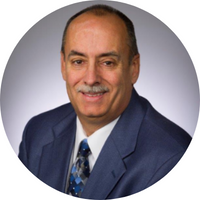
What’s something most ACS members probably don’t fully appreciate about the working world of chemical technical professionals?
They are a highly skilled, knowledgeable, capable, and valuable resource. While some technicians may not have received an advanced degree, they should be considered a technical equal due to their work experience, innovative thinking, and practical, common sense laboratory skills.
What motivated you to become a founding member of the Mid-Michigan Technician Group (MMTG) of the ACS Midland Section?
Early in my career, I often heard chemical technical professionals described as “just a technician” or “a pair of hands,” although I never thought of myself that way. When the opportunity to be a founding member of an organization whose intended purpose was to increase the visibility of technicians, create resources for career and leadership skills development, and provide networking opportunities, I jumped at the chance. Membership in MMTG allowed technicians from two separate (at the time) companies, Dow Corning Corporation and The Dow Chemical Company, to interact with each other socially and technically. We were able to share best lab practices and identify and gain knowledge from other technicians with expertise in our area of interest.
MMTG has now been active for over 30 years. What’s the secret to its longevity?
The Mid-Michigan Technician Group has been fortunate to have had a large number of highly motivated, technically skilled, and dynamic leaders throughout its lifetime. We have been able to continually bring in new members with our novel technical training programs, career skills improvement, and science outreach opportunities. We count among our members Tom Lane, the 2009 ACS President, and seven recipients of the ACS Committee on Technician Affairs Annual National Chemical Technician Award. Our MMTG strategic model seems to work, as we have been privileged to have received the ACS ChemLuminary Award for Technician Groups 18 of the 22 times it was awarded.
While with Dow Corning, you were awarded the 2015 National Chemical Technician Award, and with it, a plaque and a $1000 honoraria. Did you do something special with the money, and where is the plaque these days?
It would not have been possible to receive the NCTA award without the continual support of my wife, so we used the honoraria to explore and experience the Denver area (where I received the award). The plaque is proudly located on a wall in my study, next to a couple of other meaningful awards I have received: the Dow Corning Public Service Award and a prestigious annual local Community Service Award.
What’s the one thing you learned later in your career that you wish you knew at the start of it?
I wished I’d had an idea of how quickly technology and my work responsibilities would change. I started my career sharing a workstation running DOS and Windows 3.1 with another laboratory technician. I was expected to work on a few different projects with a couple of different managers for my entire career. I didn’t anticipate working on 35 different projects and reporting to 21 different managers before retirement. Technicians typically have limited interaction with customers but over time I was fortunate to have been able to travel; work directly with customers, equipment repair personnel and vendors; and transfer technology I helped develop to various companies at their sites.
When you think back on successful chemical technical professionals, what are some of the common attributes they share?
Work ethic, communication skills, innovativeness, and reliability. In most cases they have a diverse work background and have held a variety of titles as they advanced in their career. They have developed the ability to work in teams, solve problems, and take responsibility for the accuracy and quality of their work.
What’s your best piece of advice for chemical technical professionals?
Enthusiastically share your work experiences and best lab practices, continually develop your skill set at every opportunity, and strive to have exemplary work ethic. Join an ACS Local Section and hold an office. Attend technical conferences and industry events and gain new experiences by volunteering within the community: at local schools, with government, and in the music and arts communities. You will be expected to be extremely computer and technologically savvy. Employers are looking for experienced technicians who can act as the bridge between the lab and the consumer, between science and manufacturing.
You’re retired now. What do you miss most about your job? And what’s your favorite part of retired life so far?
The satisfaction of completing a project for a customer ahead of schedule and beyond expectations. The challenges of deadlines and opportunities for troubleshooting and solving problems. I also miss the daily social interactions I had with my work colleagues. My favorite part of retired life has been the nearly unlimited time I have available to spend with family. I also have finally begun to make progress on my ever increasing home improvement projects list. Having more time to participate in fraternal organizations like the Knights of Columbus and provide resources to Special Olympics activities is also rewarding. Retirement has also allowed me to increase the amount of entertainment opportunities I can accommodate with my mobile DJ business.

Jeff Seifferly joined the Dow Corning Corporation in 1981 after receiving his associates degree in applied science in electronic engineering technology from Delta College in University Center, Michigan. During his career, Jeff has contributed in a variety of areas including high voltage insulator development, semiconductor fabrication materials, and thin film technology, plasma enhanced chemical vapor deposition, and nano silicon technology development.
He has 14 patent IDs, 4 patents, and 20 external papers and presentations. Jeff has received a Dow Corning Technical Achievement Award and Public Service Award. He was a founding member of the Mid-Michigan Technician Group in 1991, a member of the American Chemical Society Committee on Technician Affairs and is a National Chemical Technician of the Year award winner from ACS. He is a charter member of the ACS Science Coach program, working with chemistry teachers since 2010. Jeff has been a member of the Dow Corning Employees Scholarship Committee since 1993 and its chair since 2005. He is very active in the Great Lakes Bay community, holds leadership roles on several boards and committees in the arts, education, and youth sports and is the Grand Knight of Bay City Knights of Columbus Council 414. Jeff was a recent recipient of the Dick and Carol Hardy Community Improvement Award for his pervasive and diverse commitment to bettering his community. Jeff retired from Dow Corning/Dow in 2020 after nearly 40 years of service to both companies.
This article has been edited for length and clarity. The opinions expressed in this article are the author's own and do not necessarily reflect the view of their employer or the American Chemical Society.








